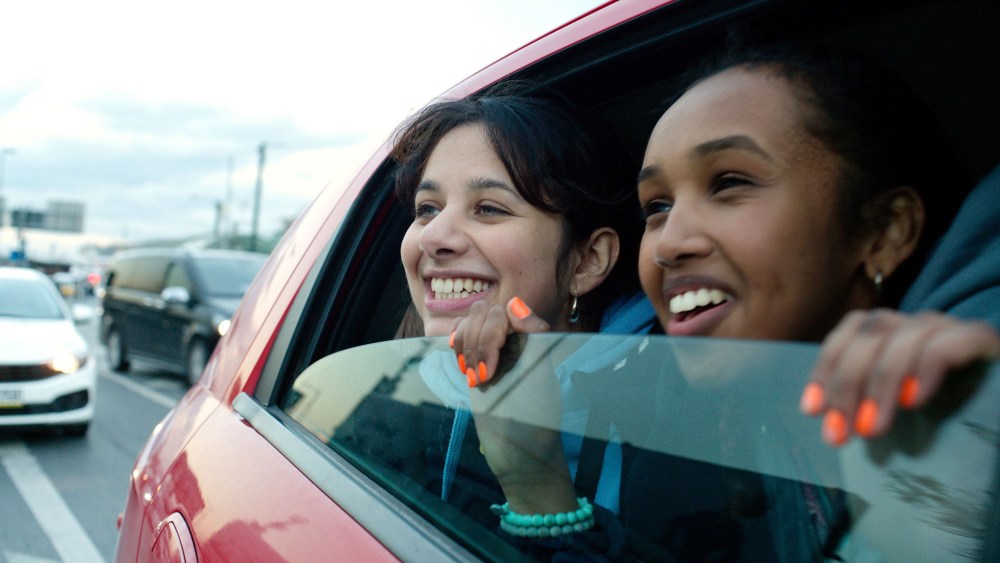Unhealthy choices—the kind that can, if not be reversed, then at least be remedied—are an essential part of adolescence: These missteps train us to understand our desires, our impulses, our weaknesses, our key characters, and Let us lose everything. Can cause more damage than a hangover throb or a smudged little tattoo. Doe and Moonagh in The Bride are 15-year-old British people who don’t have the luxury to make the right flawed choices, or allow themselves that freedom – so when they make a mistake Later, it had a reckless and potentially devastating epidemic in earthquakes. Nadia Fall, in her debut role, was clearly impressed by the case of Shamima Begum, a London teenager who secretly traveled to Syria , turned out to be the bride of ISIS. – A humorous attempt to understand the man's life behind the sensational headlines.
That said, there's almost no dialogue about terrorism or online radicalism in “The Bride,” and the word “Islamic State” never appears in Suhaila El-Bushra's energetic, event-packed script . Instead, the film presents a journey similar to Begum's, informed entirely by the attitudes of two young, troubled women – who see only an escape, not a temptation. The tension of the underlying material will bring Foer's film (which premiered among Sundance's World Cinema rivals) to the attention of distributors and programmers, while in the UK the first-time filmmaker's work as a playwright and actor Reputation may further increase its popularity. Creative Director of the Young Vic Theatre. Yet “The Bride” starts off as an examination of teenage female friendship in all its dizzying, thorny complexities—perhaps less dizzying, but richer for the film.
The year is 2014: a year before the famous Begum flight and two years before the anti-immigration sentiment in Britain sparked by the Brexit vote. Completely fell to the floor. Fifteen-year-olds Doe (screen newcomer Ebada Hassan) and Muna (Safiyya Ingar, from TV's “The Witcher” and last year's Sundance film “Layla”) are feeling the brunt of this in many ways, especially Islamophobia. Somali-born Doe immigrated to the UK with her mother Khadija (Yusra Warsama) when she was three, but she was still treated by others, just like her peers on the ship. This is largely because while the hard-partying Khadija has integrated into society through a secular, Westernized lifestyle, her shy, quiet daughter practices her Muslim religion in a more devout and strict way— Easily influenced by society. The way the media cultivates jihadist recruitment.
By her own admission, the smarter, more fashionable Muna is not as good a Muslim as Doe—she doesn’t wear a headband, and she or he has given up going to the mosque in the past while—yet, despite her Born in England to a Pakistani mother and a father, she came to realize that her significant non-secular background would always make her an outsider in the small, desolate, predominantly white seaside city where they lived. Their home life isn't particularly welcoming, as Doe clashes with Khadija's sadistic white boyfriend Jon (Leo Invoice), while Muna regularly draws the intense wrath of her particularly conservative brother. El-Bushra, also a playwright making her first foray into feature films, doesn't pre-stuff her script with backstory but instead uses the ladies' urgent present-tense escapades as frequent, pointed references. It unfolds in flashback.
Viewers should likewise immediately understand the true nature of Doe and Munna's mission: they launch in a state of gurgling excitement in a manner characteristic of London airports, and the viewer's first assumption may be that they are sneaking off for a trip to the girls. A wild ride. However, their flight destination, Istanbul, is not a typical location for such revelry, and there is a palpable anxiety behind their joy. Munna strictly asked Doe not to respond to her phone calls, and it sounded fishy to be ready to meet a stranger on the other side to continue their journey without the other person's consent. The ladies adrift in Istanbul decide to devise their own strategy for the last resort: the Syrian border.
On this level, The Bride takes on an engaging, episodic road movie style, albeit a rather contrived one, precipitated by a series of accidents, a lost passport and a police chase. The performances of Hassan and Ingar, the mismatched pair of the greatest couples, are radically different yet closely linked – the former's reclusive reclusiveness and the latter's careless, abrasive extroversion make the film pass even less. Gain attention with a stable narrative stretch. So is the vibrancy with which the scene captures the appeal and specter of the Turkish metropolis for two small-town ladies who can no longer inhabit such a vast place, though Foer's route may be overblown: a mid-movie MIA The pin drop in their rebellious song “Unhealthy Woman” is too obvious by any means.
Still, the connection between Doe and Moona never feels slick or short-cut, and their devotion to each other isn't seen as solely based on the idea of a shared identity. Muna's motivations for taking this extreme escape route are harder to understand, or more contradictory, than Doe's. However, the charming Ingar eventually becomes aware of a charming but lonely woman for whom friendship has become her religion – something to be trusted with into the unknown. As this life-or-death alliance takes shape, one sometimes needs extra flashes of the English ladies' lives together, though The Bride doesn't run at a commendably tense, erratic 93 minutes with the belated, tender extension The scene of their first reunion tells us most of what we need to know: a teenager's real-life, formative mistakes that are suddenly life-saving and suddenly life-threatening.
Post A bold, anti-stereotype examination of teenage friendship first appeared in all celebrities.

